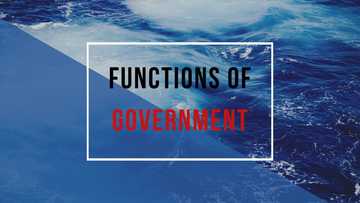5 functions of civil society in Nigeria
Are you aware of the functions of civil society in Nigeria? What is it and how does it work in Nigeria? Find answers to these questions below.

Source: UGC
Civil societies are the foundation of every democratic society. They promote positive changes in the country. What are the main functions of a civil society and how does it work in Nigeria?
What is a civil society?
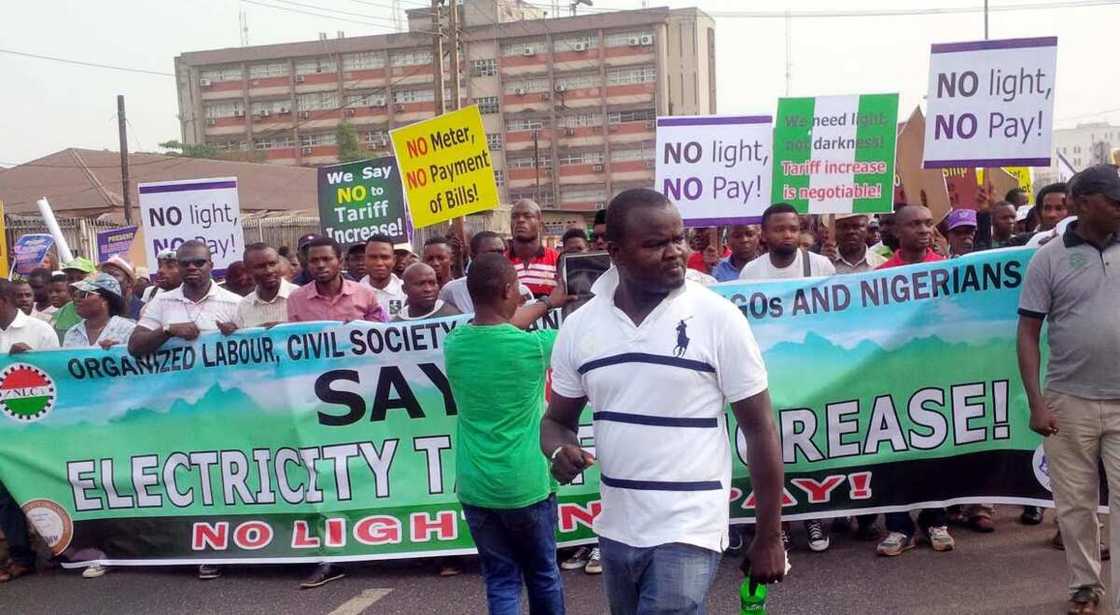
Source: UGC
A civil society plays a crucial role in the growth and development of the country. It is a community of conscious citizens, who are intelligent and well aware of the current political, economic, cultural and social situations in the world and their country in particular.
Basically, civil society exists, when independent people gather into organised groups, united by shared views and ideas for the interests of the whole population.
Functions of the civil society in Nigeria
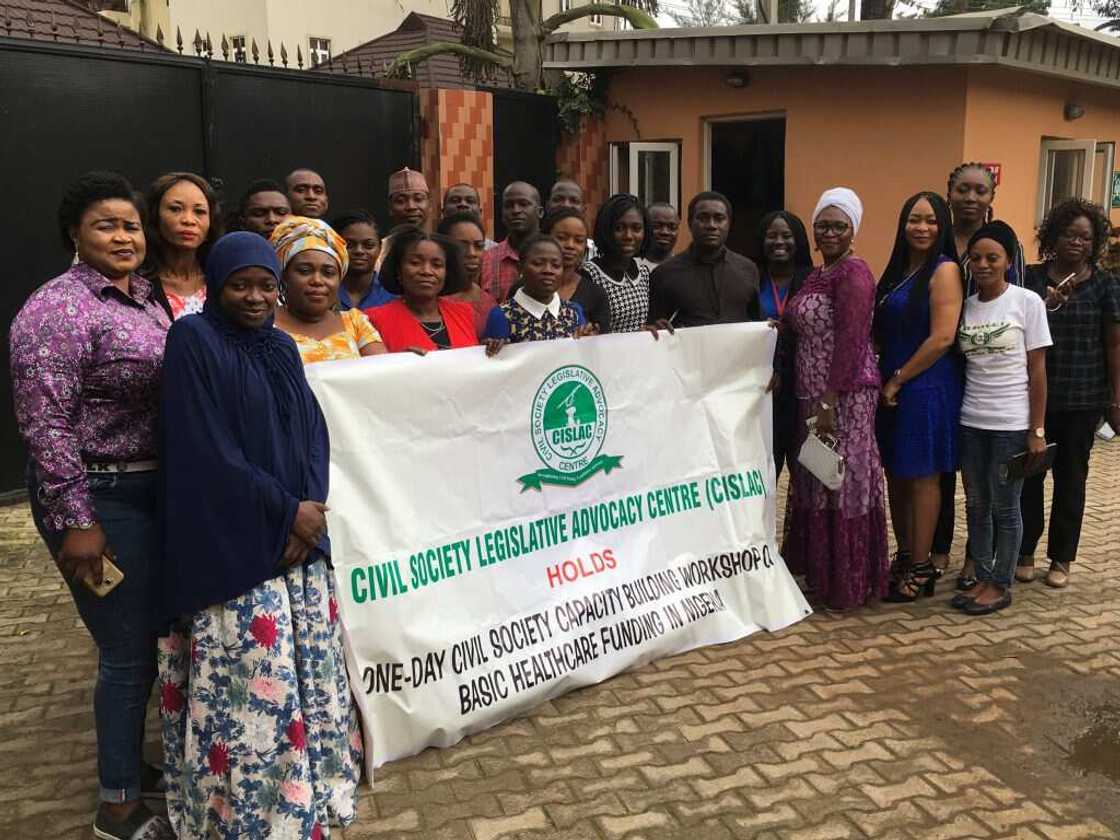
Source: UGC
Like any other developing country, Nigeria has several civil society groups that fight for the interests of the people. It is only one of the primary functions of civil societies. Here are the top 5 functions of civil society:
- Monitor government activities, political processes and force the authorities to act reasonably and accordingly to the constitution.
- Pursue positive changes in social, economic, political and cultural aspects of people’s lives.
- Be an intermediary between the public and the state, bring the interests of people to the authorities and protect democratic values.
- Communicate with the people and disseminate information about transformations in the state.
Characteristics of civil society
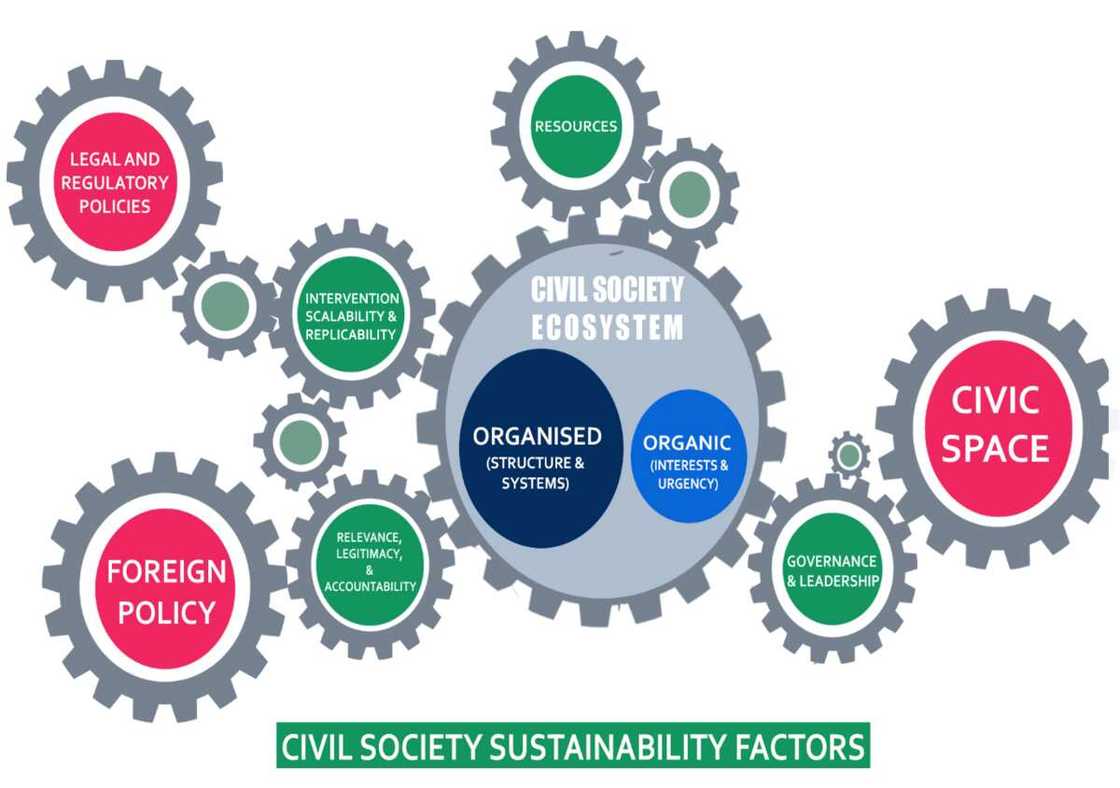
Source: UGC
The essence of the civil society lie in three principles: participation, constitutional authority, and moral responsibility.
Characteristics and functions of civil society:
- It is an independent collaboration of citizens without any connection to the governmental and private sectors.
- Actively participates in the economic, political, social and cultural aspects of the country.
- Citizens voluntarily take part in diverse social affiliations.
- Citizens hold decision-making power.
- Citizens have the right to be involved in all issues of political governance and the authority to make decisions and perform actions affecting all levels of public life.
- Civil society pursues social transformation.
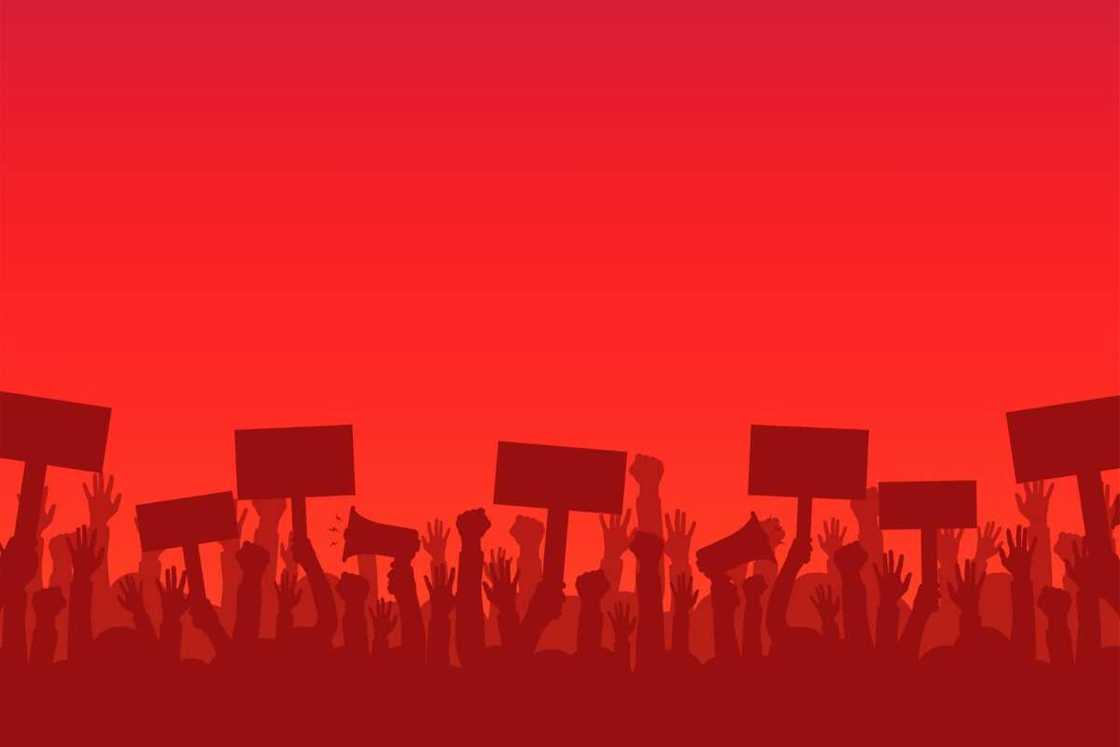
Source: UGC
READ ALSO: Nigeria rated as 19th most corrupt country in Africa - Transparency International
Simply put, civil society includes labor unions, non-profit organizations and other service agencies. It monitors government’s activities and takes active part in the transformation of the state. It has its own effective instruments which can influence positive changes in the country. For example, civil society can make a difference through media, court, peaceful protests, etc.
With the advent of social networks, the role of civil society has been strengthened, because now various organizations and unions can reach the masses through social media.
Civil society in Nigeria
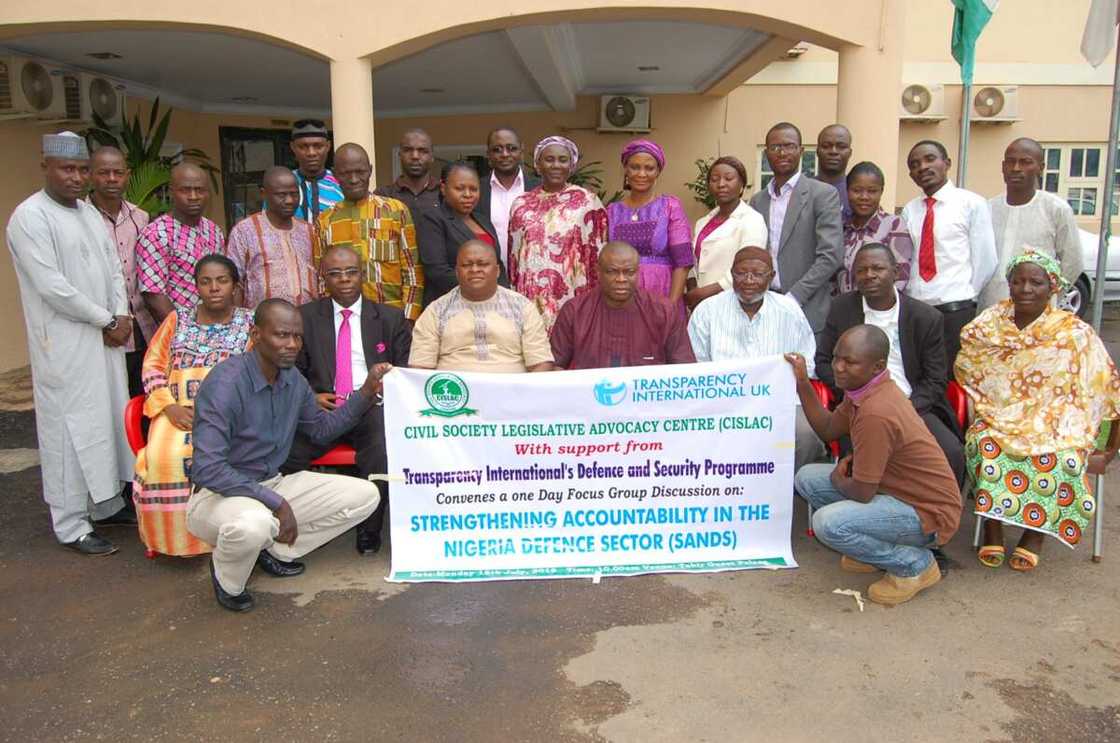
Source: UGC
Political instability is one of the most significant issues in Nigeria that drags civil society behind. Frequent changes of the government, incompetent policies and ignorant decisions from the authorities stop civil society from achieving any impressive results.
Moreover, Nigerians are unaware of the power that civil societies have and the possibility to join it. Unfortunately, the lack of knowledge about the political situation in the country also doesn’t contribute to the growth of the civil society.
Among other crucial reasons that stop civil society from dramatic changes are lack of funding and the necessary skills to pursue reforms. Nigerian civil society still has to learn a lot about democratic tools to succeed in their fight for a better country.
Examples of civil society in Nigeria
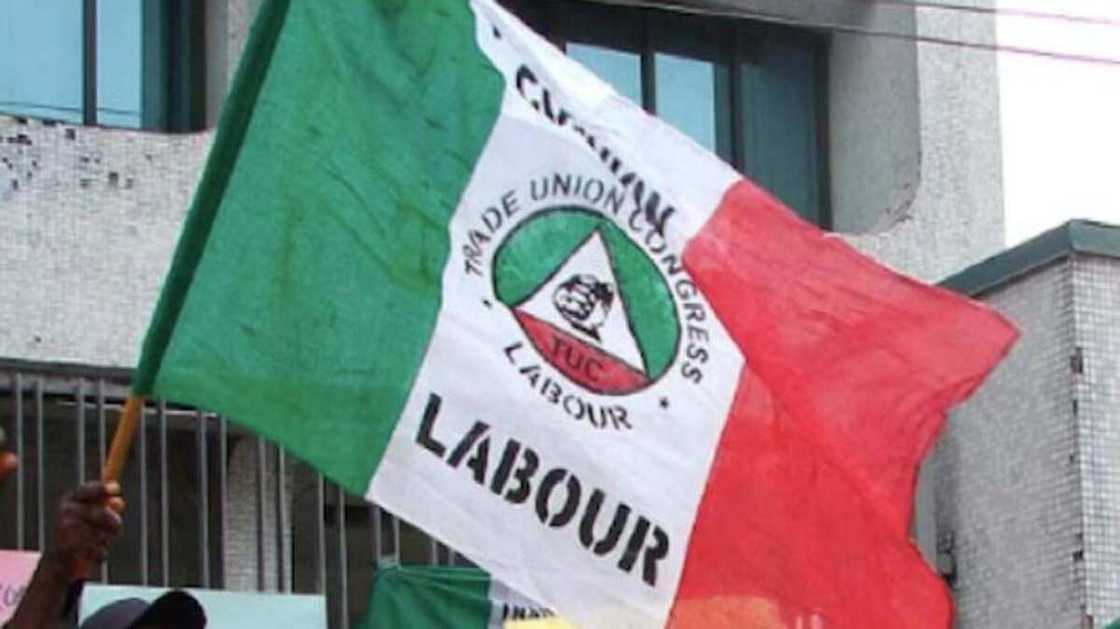
Source: UGC
Since 1999 the Constitution of Nigeria permitted freedom of assembly, associations and civil societies irrespective of the geopolitical zones, ethnic groups, and languages. Here is a list of well-known civil societies and unions in Nigerian:
- Nigeria Labour Congress
- Oodua Peoples Congress
- PANDEF
- Arewa People’s Congress
- Ohanaeze Ndigbo
Civil societies are vital for checking government excesses, fighting for the rights of the masses and making government accountable to the people.
READ ALSO: See Nigeria’s corruption perceptions index scores from 1996 to 2018
Source: Legit.ng


